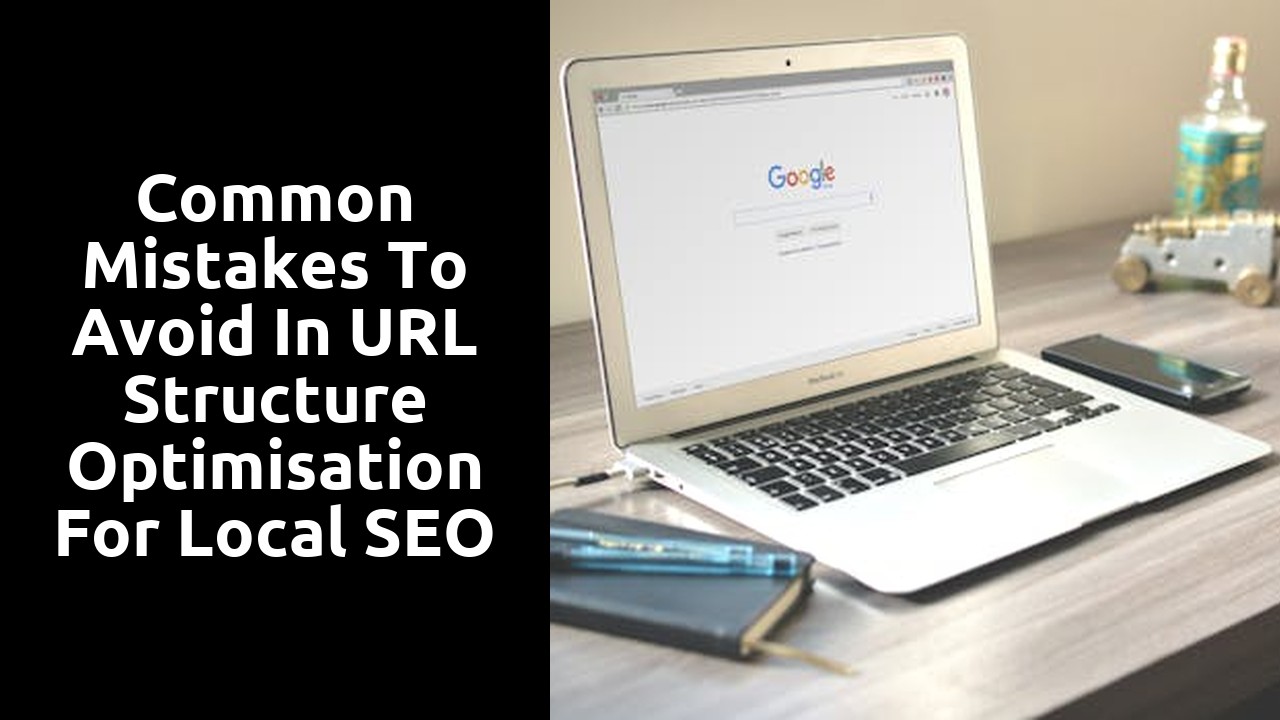Common mistakes to avoid in URL structure optimisation for local SEO

Setting Up Your URLs for Local SEO Success
Setting up your URLs for local SEO success is crucial when it comes to attracting and engaging your target audience. One common mistake that many businesses make is using generic or generic-sounding URLs that provide little to no indication of their local relevance. For example, instead of using a URL like "www.example.com/services," consider using a URL like "www.example.com/london-services" to clearly communicate your local presence and target audience. By incorporating relevant keywords and location information into your URLs, you can make it easier for search engines to understand the localized nature of your business and improve your chances of appearing in local search results.
Another mistake to avoid is including unnecessary parameters or characters in your URLs. Keeping your URLs clean and concise not only improves the user experience but also makes it easier for search engines to crawl and index your website. Avoid using numbers, symbols, or excessive words that do not contribute to the understanding of your content. Instead, focus on using descriptive words and phrases that accurately represent the page's content and context. For instance, instead of using a URL like "www.example.com/product?id=12345," opt for a URL like "www.example.com/product/brand-name-red-shoes" to provide both search engines and users with a clear indication of what the page is about.
Crafting UserFriendly URLs for Local Search Rankings
When it comes to crafting user-friendly URLs for local search rankings, there are a few key considerations to keep in mind. First and foremost, it is important to keep your URLs short and concise. This not only helps improve user experience but also makes it easier for search engines to crawl and index your website. Avoid using unnecessary words or characters in your URLs, and instead, focus on using relevant keywords that accurately describe the content of the page.
In addition to keeping your URLs short, it is crucial to make them readable and easy to understand. Use hyphens to separate words in the URL, as search engines consider hyphens as word separators. This helps search engines recognize the individual words in the URL and improves the chances of your website appearing in relevant search results. Avoid using underscores or other special characters in your URLs, as they can cause confusion and make it harder for both users and search engines to interpret the URL. By following these best practices, you can create user-friendly URLs that not only enhance your local search rankings but also provide a seamless browsing experience for your website visitors.
Boosting Your Local SEO with Optimized URL Structures
With the increasing importance of local SEO, it is crucial to optimise your URL structures for better visibility and rankings in local search results. When it comes to boosting your local SEO with optimised URL structures, there are several key considerations to keep in mind.
Firstly, it is important to keep your URLs concise and descriptive. Avoid long, convoluted URLs that are difficult for both search engines and users to understand. Instead, opt for short, keyword-rich URLs that accurately reflect the content of the page. This not only helps search engines understand the context of your page, but also provides a clear, user-friendly experience. Additionally, consider including your location or relevant keywords in your URL to further enhance your local SEO efforts. By adopting these URL optimisation best practices, you can strengthen your local SEO strategy and increase your business's visibility in local search results.
Unleashing the Power of SEOFriendly URLs for Local Marketing
Unleashing the Power of SEO-Friendly URLs for Local Marketing
The success of local businesses heavily relies on their online visibility, and one fundamental aspect of this is the optimization of URL structures. SEO-friendly URLs play a crucial role in helping businesses rank higher in local search results and drive more organic traffic to their websites. However, many businesses still overlook the importance of crafting user-friendly URLs that are optimized for local SEO.
When it comes to URL structure optimization for local marketing, simplicity is key. A clean and straightforward URL not only helps search engines understand the topic and relevance of the page, but it also enhances user experience. Including relevant keywords and location information in the URL can be an effective way to communicate the local intent of the page to both search engines and users. By incorporating targeted keywords into the URL, businesses can improve their chances of ranking higher in local search results and attract more qualified leads.
Avoiding URL Pitfalls: Local SEO Best Practices
When it comes to local SEO, avoiding URL pitfalls is crucial for the success of your online presence. Your URL structure plays a significant role in the visibility of your local business in search engine results. To ensure that your URLs are optimized for local SEO, there are a few best practices that you should keep in mind.
Firstly, it is essential to keep your URLs short and descriptive. This will not only make it easier for search engines to understand the content of your web pages but also for users to navigate your site. Including relevant keywords in your URLs can also enhance your local SEO efforts. However, be cautious not to overdo it with keyword stuffing as it may have the opposite effect and can be seen as spammy by search engines. Secondly, using hyphens to separate words in your URLs is recommended as it improves readability and makes it easier for both search engines and users to understand the structure of your website. Additionally, avoid using underscores or special characters in your URLs as they can lead to confusion.
Related Links
Tips for optimising URL structure for local service area businessesBest practices for creating SEO-friendly URLs for local businesses